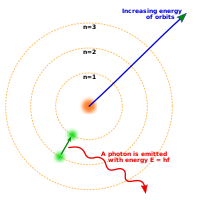
Photo from wikipedia
Context: Software product lines (SPLs) have reached a considerable level of adoption in the software industry. The most commonly used models for managing the variability of SPLs are feature models… Click to show full abstract
Context: Software product lines (SPLs) have reached a considerable level of adoption in the software industry. The most commonly used models for managing the variability of SPLs are feature models (FMs). The analysis of FMs is an error-prone, tedious task, and it is not feasible to accomplish this task manually with large-scale FMs. In recent years, much effort has been devoted to developing reasoning algorithms for FMs. Aim: To synthesize the evidence on the use of reasoning algorithms for feature modeling. Method: We conducted a systematic mapping study, including six research questions. This study included 66 papers published from 2010 to 2020. Results: We found that most algorithms were used in the domain stage (70%). The most commonly used technologies were transformations (18%). As for the origins of the proposals, they were mainly rooted in academia (76%). The FODA model continued to be the most frequently used representation for feature modeling (70%). A large majority of the papers presented some empirical validation process (90%). Conclusion: We were able to respond to the RQs. The FODA model is consolidated as a reference within SPLs to manage variability. Responses to RQ2 and RQ6 require further review.
Journal Title: Applied Sciences
Year Published: 2022
Link to full text (if available)
Share on Social Media: Sign Up to like & get
recommendations!